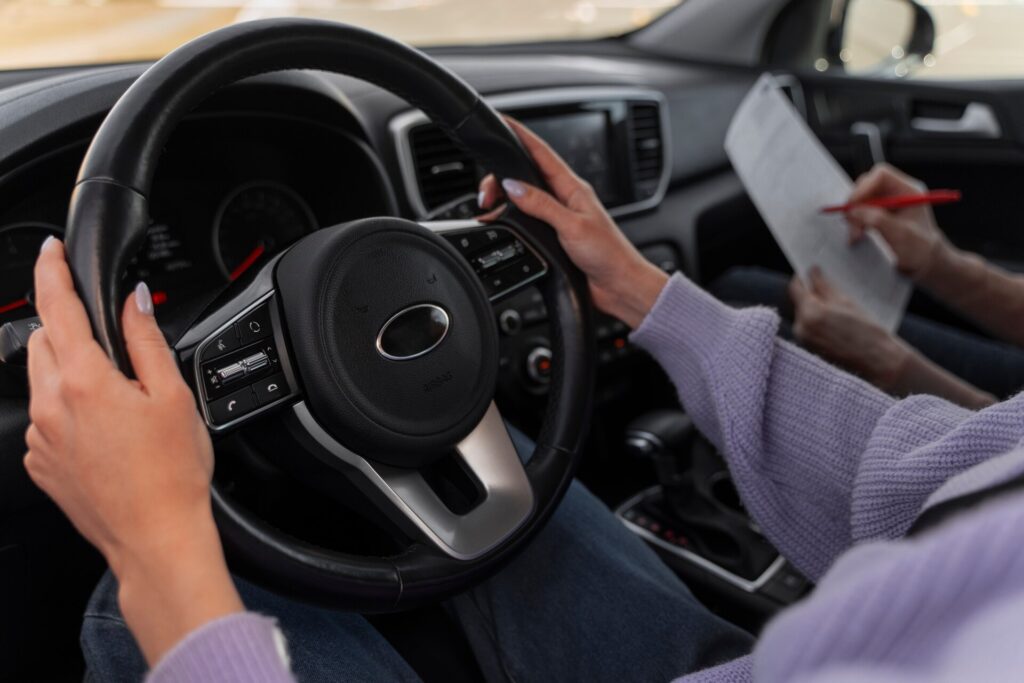Are you experiencing a mysterious shaking sensation in your steering wheel? If so, you’re not alone. Many people are searching for answers as to why their steering wheel shakes and vibrates while driving. Whether it happens at high speeds, when braking, or after hitting a bump, this issue can be concerning and potentially dangerous. In this article, we will delve into the various causes of steering wheel shaking, provide possible solutions to fix the problem and address any safety concerns you may have.
One common reason for steering wheel shaking is an imbalance in your wheels or tires. When the weight distribution is uneven, it can cause vibrations that are felt through the steering wheel. This can be due to a variety of factors, such as uneven tire wear, bent rims, or loose lug nuts. Another possible cause is a misalignment of your wheels, which can occur over time or as a result of hitting a pothole or curb. When your wheels are not properly aligned, it can lead to steering wheel shaking and a decrease in overall vehicle performance.
In addition to wheel and tire issues, steering wheel shaking can also be a symptom of brake or suspension problems. When you apply the brakes and feel a shaking sensation in the steering wheel, it could indicate warped brake rotors or worn-out brake pads. Similarly, if your steering wheel shakes after hitting a bump or pothole, it may be a sign of damaged suspension components, such as worn-out shocks or struts.

Why Is Your Steering Wheel Shaking?
Your steering wheel shaking can be a cause for concern, as it can affect your ability to control your vehicle. There are several reasons why your steering wheel may be shaking, and it’s important to identify the root cause in order to address the issue effectively.
Imbalanced or Worn Out Tires
One common reason for steering wheel shaking is imbalanced or worn out tires. When your tires are not properly balanced, it can result in vibrations that are felt in the steering wheel. Similarly, if your tires are worn out or have uneven tread wear, it can lead to shaking.
Brake Issues
Another possible cause of steering wheel shaking is brake issues. If your brake rotors are warped or worn out, it can cause vibrations that are transmitted to the steering wheel, especially when braking.
By understanding the common reasons behind steering wheel shaking, you can take the necessary steps to fix the issue and ensure a smooth and safe driving experience.
How To Fix Steering Wheel Shaking
One of the most common issues that drivers experience is steering wheel shaking. However, there are effective ways to fix this problem and ensure a smoother driving experience.
Check the tire balance
One possible cause of steering wheel shaking is an imbalance in the tires. To fix this, you can have your tires balanced by a professional. This involves redistributing the weight of the tires to ensure even rotation and eliminate vibrations.
Inspect the wheel alignment
Another reason for steering wheel shaking could be improper wheel alignment. If the wheels are not aligned correctly, it can lead to uneven tire wear and shaking. Taking your vehicle to a mechanic for a wheel alignment can help resolve this issue.
By addressing these common causes of steering wheel shaking, you can improve the stability and comfort of your driving experience. Remember to regularly maintain your vehicle to prevent future issues and ensure a smooth ride.
Common Reasons Why Your Steering Wheel Shakes
One of the most common reasons for steering wheel shaking is an issue with the wheel balance. When the wheels are not properly balanced, it can cause vibrations that are felt through the steering wheel. Another possible cause is a problem with the suspension system. If the suspension components are worn or damaged, it can lead to a shaky steering wheel. Additionally, worn-out or damaged tires can also be a culprit. Uneven tire wear or a tire with a bulge or bubble can cause the steering wheel to shake. Furthermore, issues with the brake system can contribute to steering wheel shaking. Warped brake rotors or worn brake pads can cause vibrations when braking. Lastly, hitting a bump can also result in a shaking steering wheel. This could indicate a problem with the suspension or steering components.
What Should I Do About Steering Wheel Shaking?
Steering Wheel Shaking: Causes
If you notice your steering wheel shaking, it is important to take action promptly to ensure your safety on the road.
Check for Tire Issues
One common reason for steering wheel shaking is tire problems. Inspect your tires for any signs of damage or uneven wear. If you notice any issues, such as bulges or bald spots, it may be necessary to replace the tires. Additionally, make sure your tires are properly inflated to the recommended pressure.
Get a Wheel Alignment
Another potential cause of steering wheel shaking is misalignment. If your wheels are not properly aligned, it can lead to uneven tire wear and shaking. Visit a professional mechanic to have your wheels aligned and ensure smooth steering. Remember, ignoring steering wheel shaking can lead to further damage and compromise your safety. Take the necessary steps to address the issue promptly.
Why Is Your Steering Wheel Shaking at High Speeds?
Steering Wheel Shaking: Causes
Driving at high speeds can be exhilarating, but it can also be unnerving if your steering wheel starts to shake. There are several potential reasons for this unsettling phenomenon.
1. Imbalanced Tires:
One possible cause of steering wheel shaking at high speeds is imbalanced tires. When your tires are not properly balanced, they can create vibrations that are felt through the steering wheel. This can be resolved by having your tires balanced by a professional.
2. Suspension Issues:
Another reason for steering wheel shaking at high speeds could be problems with your suspension system. Worn-out or damaged suspension components can cause vibrations to travel up to the steering wheel. It is important to have your suspension inspected and repaired if necessary.
Remember, if your steering wheel is shaking at high speeds, it is crucial to address the issue promptly. Ignoring the problem could lead to further damage and compromise your safety on the road.
How To Fix Steering Wheel Shaking When Braking
Steering Wheel Shaking: Causes
If you’re experiencing steering wheel shaking when you apply the brakes, it’s important to address the issue as soon as possible for your safety on the road. One common reason for this problem is warped brake rotors. Over time, the heat generated from braking can cause the rotors to warp, resulting in an uneven surface that leads to shaking. To fix this issue, you will need to have your brake rotors resurfaced or replaced by a professional mechanic.
Another possible cause of steering wheel shaking when braking is worn brake pads. When the brake pads become thin or worn down, they can cause vibrations during braking. In this case, you will need to have the brake pads replaced. It’s also important to check for any loose or worn suspension components, as they can contribute to steering wheel shaking when braking. Overall, addressing the root cause of the issue and getting the necessary repairs done will help ensure a smooth and safe driving experience.
Common Reasons Why Your Steering Wheel Shakes After Hitting a Bump
Steering Wheel Shaking: Causes
After you hit a bump on the road, it can be quite alarming to feel your steering wheel shaking. There are several common reasons why this might happen.
One possible reason is that your vehicle’s suspension system may be damaged or worn out. When you hit a bump, the suspension is responsible for absorbing the impact and keeping your ride smooth. If it is not functioning properly, you may feel the vibrations in your steering wheel. Another possible cause could be a misalignment in your wheels. Hitting a bump can throw off the alignment, causing your steering wheel to shake.
It is important to address these issues promptly, as they can affect your vehicle’s handling and safety. If you experience steering wheel shaking after hitting a bump, it is recommended to have your suspension system and wheel alignment checked by a professional mechanic. They will be able to diagnose the problem and provide the necessary repairs or adjustments to ensure a smooth and safe driving experience.











I’m extremely impressed together with your writing abilities and also with the format to your blog. Is this a paid subject or did you customize it yourself? Either way keep up the excellent high quality writing, it is uncommon to look a great blog like this one nowadays!